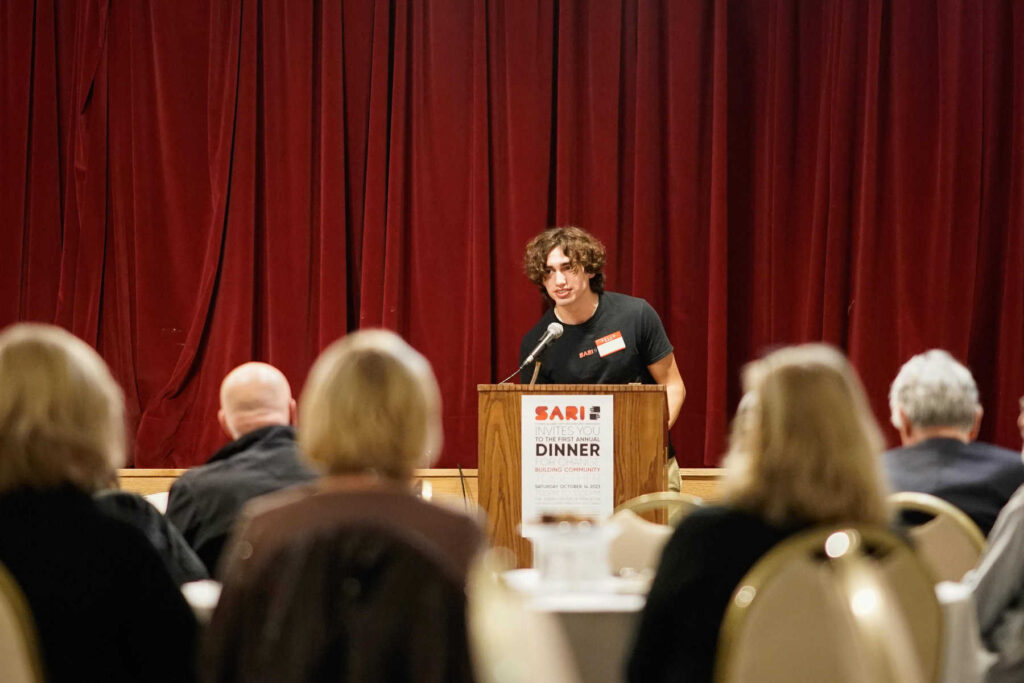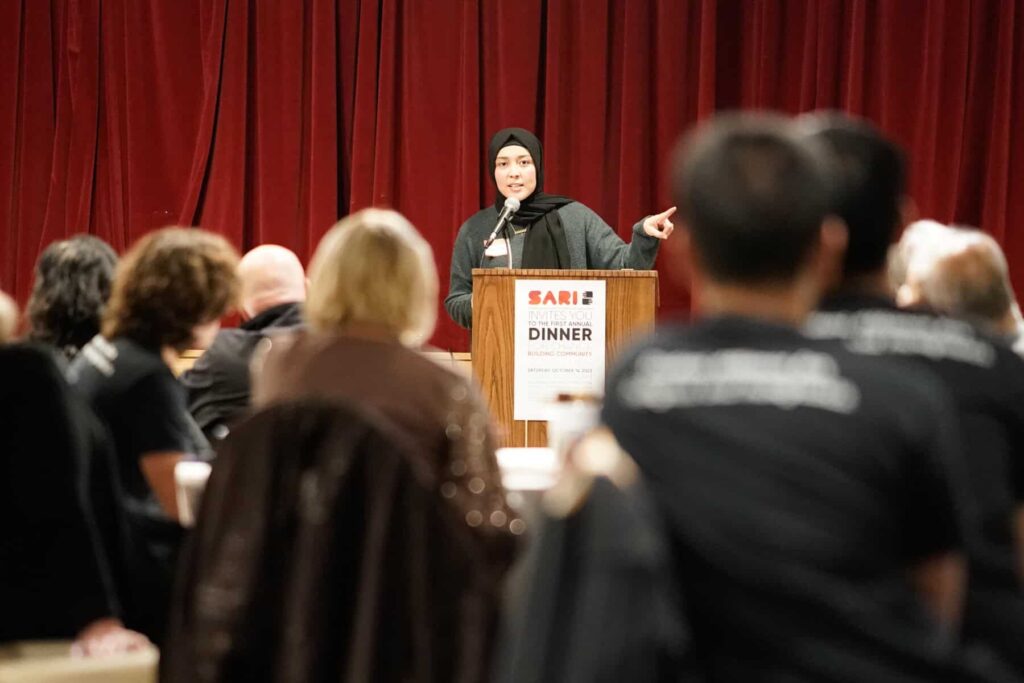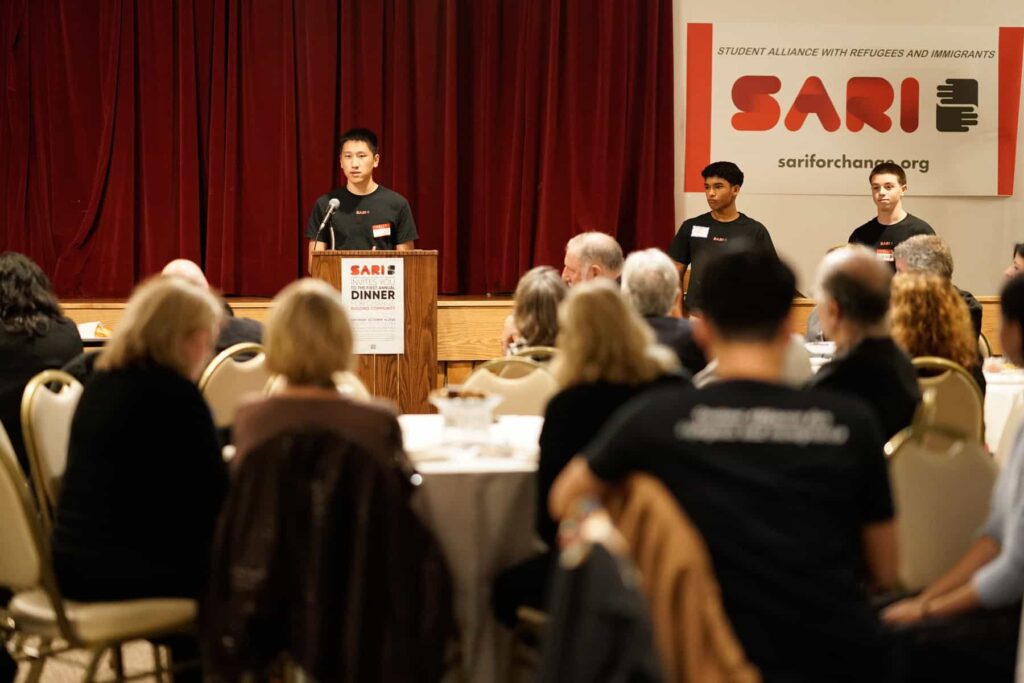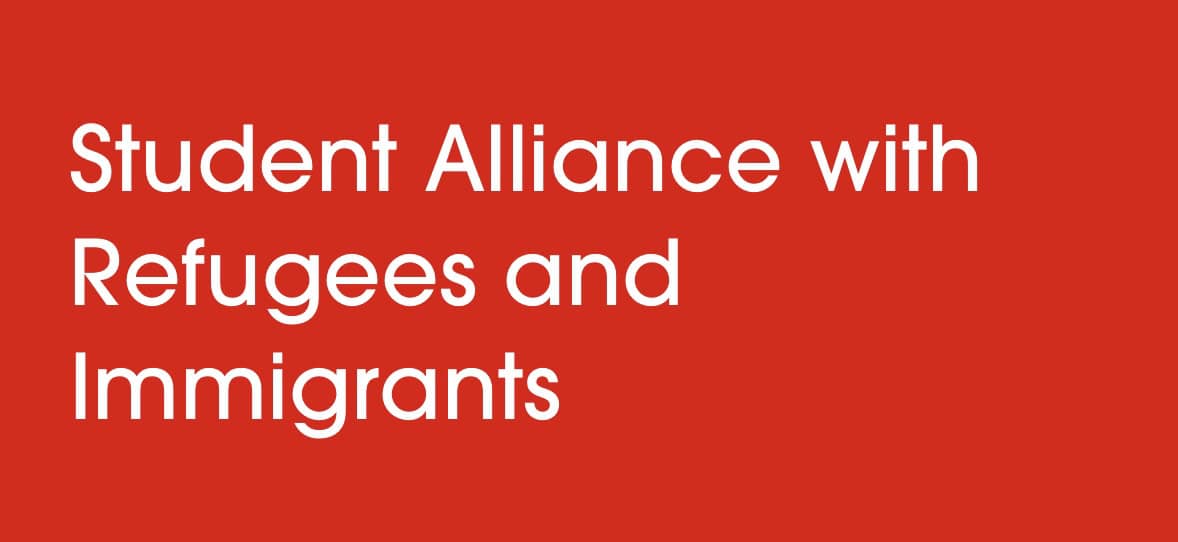While just coming to the United States is already a giant hurdle for immigrants and refugees, the challenges don’t stop once they arrive.
There is learning a new language, resettling, and navigating a new nation of laws.
Nonprofit Student Alliance with Refugees and Immigrants (SARI) has been able to provide a boost to its help with resettlement efforts for families in the Princeton area after raising around $20,000 from the first-ever Dinner for Change.
“The dinner went a lot better than SARI had expected. As a registered nonprofit we are a relatively a new organization,” said Arun Bhattacharjee, executive director of SARI.
The student-led organization’s Dinner for Change took place at the Jewish Center of Princeton on Oct. 14.
“Our organization is really focused on educating refugees and immigrants in the local area, so the first thing we have been spending money on is different ESL (English as a Second Language) curriculums,” Bhattacharjee said.

SARI is currently working with three families in the Princeton area.
“We have been teaching them ESL and helping them do homework and things like that after school,” he added.
The nonprofit has been buying books, school supplies, helping with transportation costs, which can be a burden for families, and buying different tools and gear for refugee and immigrant students who need them for different field trips.
SARI’s original goal for the first Dinner for Change was around $5,000. The evening result of $20,000 exceeded the nonprofit’s expectations for the night.
Attendees heard personal refugee stories, listened to students involved with SARI, and professionals from Interfaith-RISE, an organization that provides assistance and resources to refugees and asylees.

“I think the attendees of this event see how complex of an issue this truly is. I think people kind of underestimate that coming here is a significant part of the process,” Bhattacharjee said.
“But, once you are here there is a whole other process within itself in terms of learning how to speak English, understanding laws, and how you can proceed as a member of this country essentially.”
He noticed how student refugees are thrown into these environments that can be overwhelming especially large ELS programs because the refugees “basically have no English comprehension.”
Bhattacharjee, 17, started SARI in Princeton during his sophomore year at Princeton High School (PHS). He is now a senior at the Hun School, which is also in Princeton.
The student-led nonprofit is at three different schools as clubs PHS, The Hun School, and PRISMSUS (Princeton International School of Mathematics and Science).
Additionally, SARI currently has a total of 300 volunteers.
Bhattacharjee, whose dad is a first-generation immigrant from India, was first propelled to act to help refugees when the United States withdrew from Afghanistan in 2021.
“I started volunteering at Interfaith-RISE as a mover and packer, so I would go through different donations load them into a truck or load them into a vehicle to bring to a new family’s apartment,” he said. “From there I started working with the Jewish Center of Princeton Refugee Resettlement Committee, which is kind of similar to SARI.”
Bhattacharjee was then connected with a family and started doing ESL tutoring.
“That completely changed my life seeing these kids, who are brilliant, but in such hard positions and they just need someone, and they just need someone to help,” he said.
That is when Bhattacharjee established SARI to further help resettlement efforts in the Princeton area.
SARI helps through student volunteer recruitment, educational programs, and fundraising to help meet the educational and resettlement needs of local families. Also educating area high school students about some of the ways they can make a difference in their schools and communities, according to the organization’s website.
SARI has been active since 2021 and first started as a club in PHS, before officially becoming a nonprofit in July.
“Once we started kind of making it bigger and more expansive, things like bringing in student volunteers, I quickly realized we needed money to actually accomplish any of the things we wanted to,” Bhattacharjee said. “Whether that be books for the students, educational games, transportation.”
That is when the idea for Dinner for Change formed.
“That was kind of the major push to become a nonprofit, because we had kind of [only] operated as clubs at different schools,” he said, adding becoming a nonprofit allows the organization to raise money without being taxed.

For more information about nonprofit SARI, visit www.sariforchange.org.

